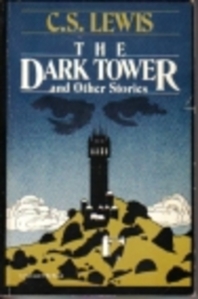A minor collection fragments and short stories, The Dark Tower and Other Stories provides some tantalising glimpses into the Lewis that might have been, had circumstances moved differently. More science fiction-oriented than one might have otherwise expected from this donnish member of that most donnish club, the Inklings, these are also stories unpinned from the structural support of Lewis’ take on morality and religion, which is generally one of the least-offensive and most scholarly and sympathetic of any Christian writer that I’ve ever encountered. Lewis almost seems to have come to religion in spite of himself.
Readers who know Lewis from the Narnia books alone will not recognise much here. Readers who have met him in the Out of the Silent Planet Trilogy will be on more familiar ground, especially in The Dark Tower, the longest fragment, which picks up another adventure of the protagonist of Planet, Ransom, who is here involved with a complicated machine which appears to be observing a time akin to, but also very different from, the Cambridge of the day (around 1935). This is a tantalising piece of a bigger story, and it is a shame, doubtless, that Lewis did not finish it.
Of the other stories, here is a quick breakdown:
* The Man Born Blind – a man does not understand the concept of light, misjudges a painter’s words, and meets a grim end.
* The Shoddy Lands – a daydreamer enters a hideous caricature of reality as seen through the eyes of a woman he dislikes.
* Ministering Angels – women are sent to a Martian research facility and upset the balance among the men.
* Forms of Things Unknown – three Lunar expeditions have gone suddenly silent, one after the other. A lone astronaut attempts to solve the mystery.
• After Ten Years – another tantalising fragment of the story of the end of the Trojan War and its aftermath. Worth the price of admission for the opening chapter, which gradually reveals the position of the Greeks in the belly of the Wooden Horse.
Two of these tales, “The Dark Tower” and “After Ten Years,” also have some editorial exegesis, which mainly serves to give them historical context. The other stories stand essentially complete.
Although compelling and even brilliantly-written in places, there is an odd thread running through the stories, one which feels faintly misogynistic. The world created in “The Shoddy Lands”, for example, is one made by an unobservant female, who has focused on only the bits of the world which appeal to her “feminine sensibilties” (flowers, clothing shops, and the like), and who is later physically described with something akin to revulsion. In “Ministering Angels” we have the breakdown to two types of woman, the hard-faced and clinical academic, and the grotesque, aged sensualist well past her prime: both of these have come to Mars because of a decision taken that space expeditions need a bit of feminine companionship, to put it euphemistically, as decided by [in the dialect of the Scots character]: “a pack o’ daft auld women (in trousers for the maist part) who like onything sexy, and onything scientific, and onything that makes them feel important. And this gives them all three pleasures at once, ye ken.” (p. 122). It is particularly interesting that, even during a time in which women in academia were becoming more prevalent, Lewis chooses to view the province of (still hypothetical) space exploration as being entirely male. In “Forms of Things Unknown”, Jenkin’s whole reason for departing on the lunar expedition is that he has been treated rather badly by a girl; he later dies at the hands of what can only be described as the archetype of feminine ugliness, the Medusa. And in “After Ten Years”, Lewis toys with the idea not only that the Trojan War was really all about trade routes for corn, but that the woman given as the nominal cause of the War, Menelaus’ wife, the stolen Helen, had in fact aged rather badly in ten years, and was now just a woman past her prime, meekly asking after her daughter.
Definitely an interesting collection, and one worth reading for fans of Lewis and completists, but a far cry from the upstanding, egalitarian, genteel figure of idealised Christian imagination. On the whole, one doesn’t find that Lewis’ character comes off all that well. Four stars for the writing, two stars for the frankly Neanderthal perspective. Averages to three out of five stars.
Originally reviewed 14 July 2014.
Find your copy of The Dark Tower and Other Stories on AbeBooks.com.


Nice review!
LikeLike
Thank you!
LikeLike